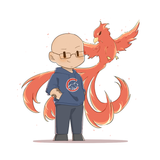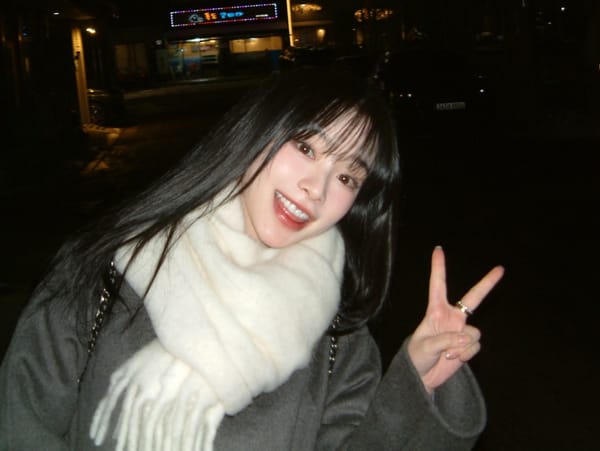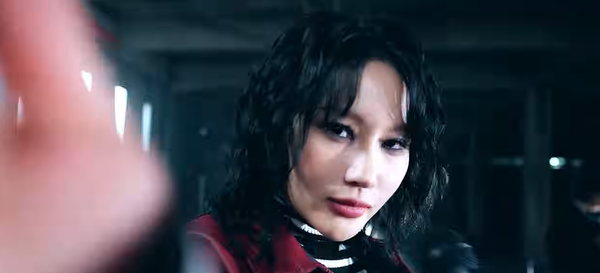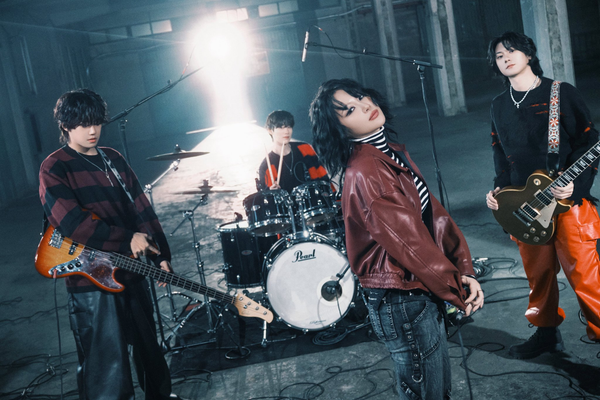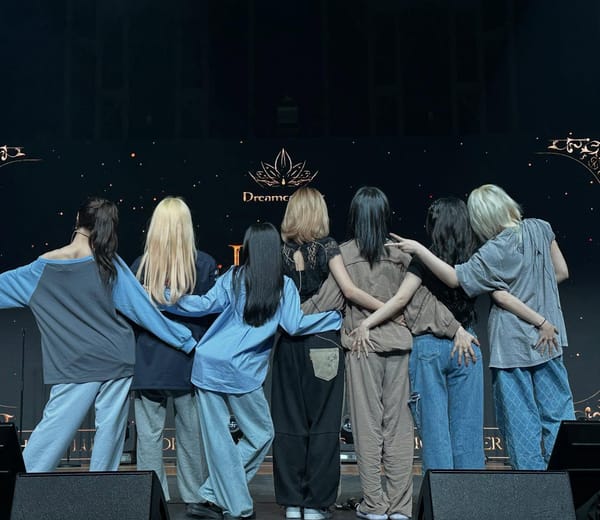You Don't Have To Be A Real K-Pop Fan
Being a fake still gets you into the K-Pop club.

I’ve been into K-Pop for a long time now, and even though the industry and groups change and evolve over time, there are a few consistencies that I can count on. One of these is the idea of being a real K-Pop fan, normally in the context of what designates you as a fan of a favorite artist or group in the industry. And in many cases, the idea of being a “real” fan doesn’t actually involve the word “real” being spoken - there’s just a certain set of implied ideas, practices, and attitudes that seem to declare yourself a member of the K-Pop club.
Well, I’m here to tell you today that you don’t have to be a real K-Pop fan. It’s fine being a total fake. I know from personal experience that you can be a big faker in K-Pop and still come out OK on the other end of things.
Are there actual requirements? Sure, we’ll get to those. But until then…
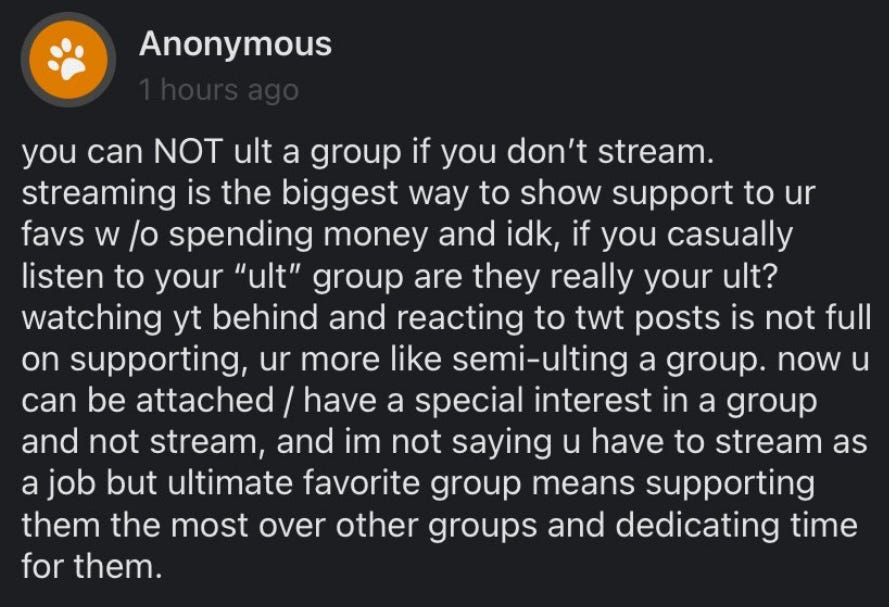
You don’t have to stream.
Streaming’s that thing that real K-Pop fans constantly post about doing for K-Pop artist comebacks. Digital streaming of songs, music videos, and the like is one of the industry’s ways of measuring metrics and success, so I kinda get it. But you don’t have to do it. You can enjoy, appreciate, and vibe to your favorite K-Pop artist’s stuff, listen to or watch their content when you want, then set it aside or bookmark it for later. You can feel comfortable in your fakery and leave the hardcore streams to those real fans with 8 devices that can do it.
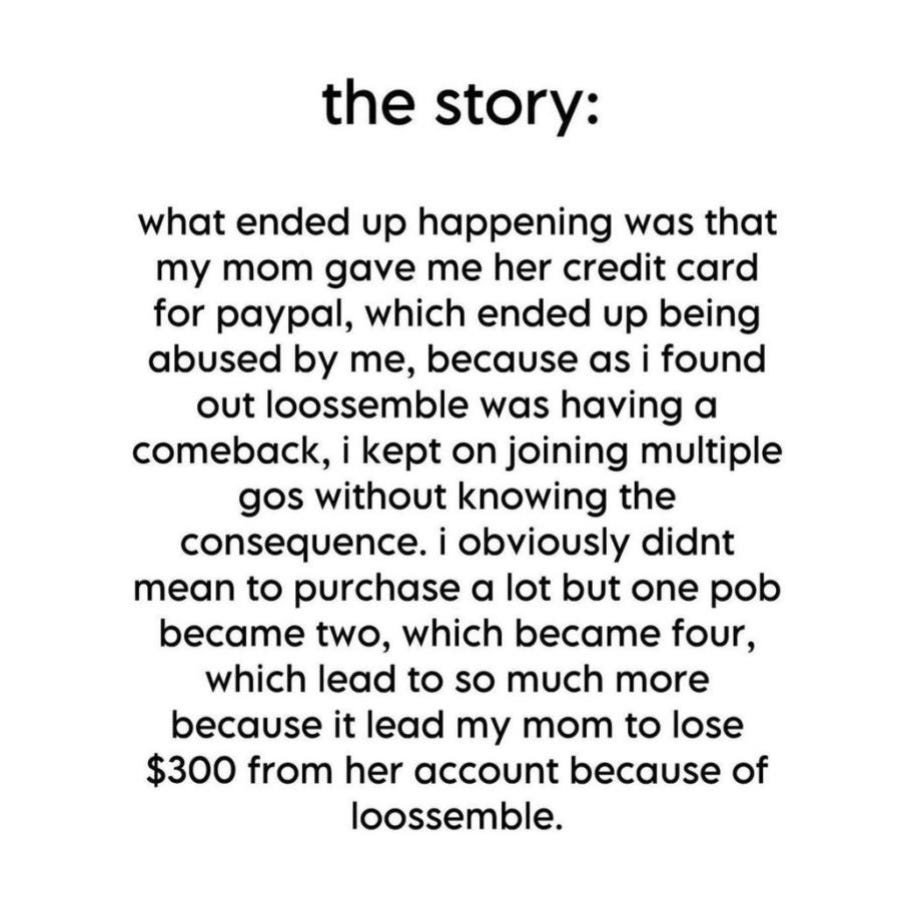
You don’t have to buy everything.
I think for my favorite K-Pop group, I spent the equivalent of around $40 USD last comeback. I know, I know, big fake here. But aside from my personal financial situation dictating it, monetary support shouldn’t be a peer-pressured thing, one that gives you stress over the fact that if you don’t spend, your favorites might go under. Yes, your favs do need cashflow to keep going - especially when they’re not the IVE’s or the Blackpinks or the HYBE-backed groups of the K-Pop world. But leaving it to the real fans who can or are willing to buy the boxes of albums needed to fuel their next comeback is totally fine - especially when word of mouth (which costs nothing, by the way) can do plenty for driving revenue.
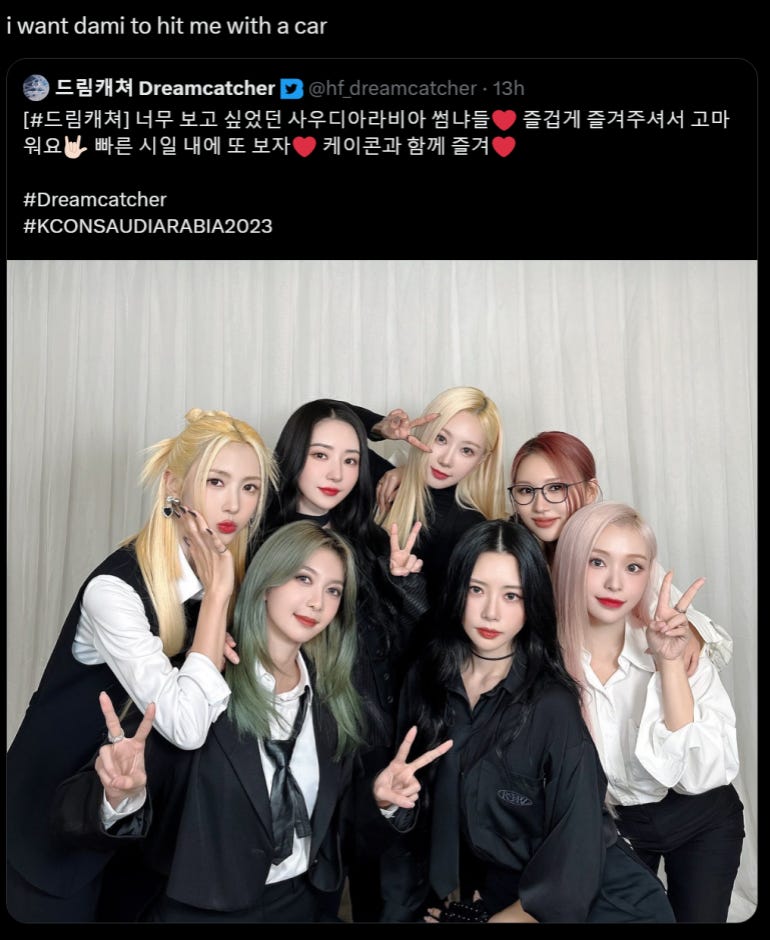
You don’t have to ask your favorite idols to hurt you.
OK, this is an easy one.
You can be a fake fan with the added bonus of also being pain-free.
Your favorite artists also probably wouldn’t want to hurt you - they’d feel bad!
Moving on.

You don’t have to lose coherency or be “killed” over a K-Pop visual.
For the ones that do, go at it with your keyboards, it’s all good as long as its generally respectful (more on that later). But it’s also entirely fine to be a big faker, see a K-Pop visual presentation, and treat it like any other celebrity performance you see outside of K-Pop, too. You don’t have to go feral, act like you’ve been murdered in the chat, or otherwise have a huge reaction to how your favorite K-Pop group or soloist looks.
The entire package, by its very nature, is based around idols looking good, and companies spend a ton on outfits, stylists, and staff to make sure it happens. There’s no requirement to the degree of your reaction to that, especially since others take their fakeness to the next level, and may only like K-Pop for the music, and disregard the visualization entirely (gasp). Fans in this category can be fakes together, and be simply appreciative for the hours it took to get the “look” just right for stage.
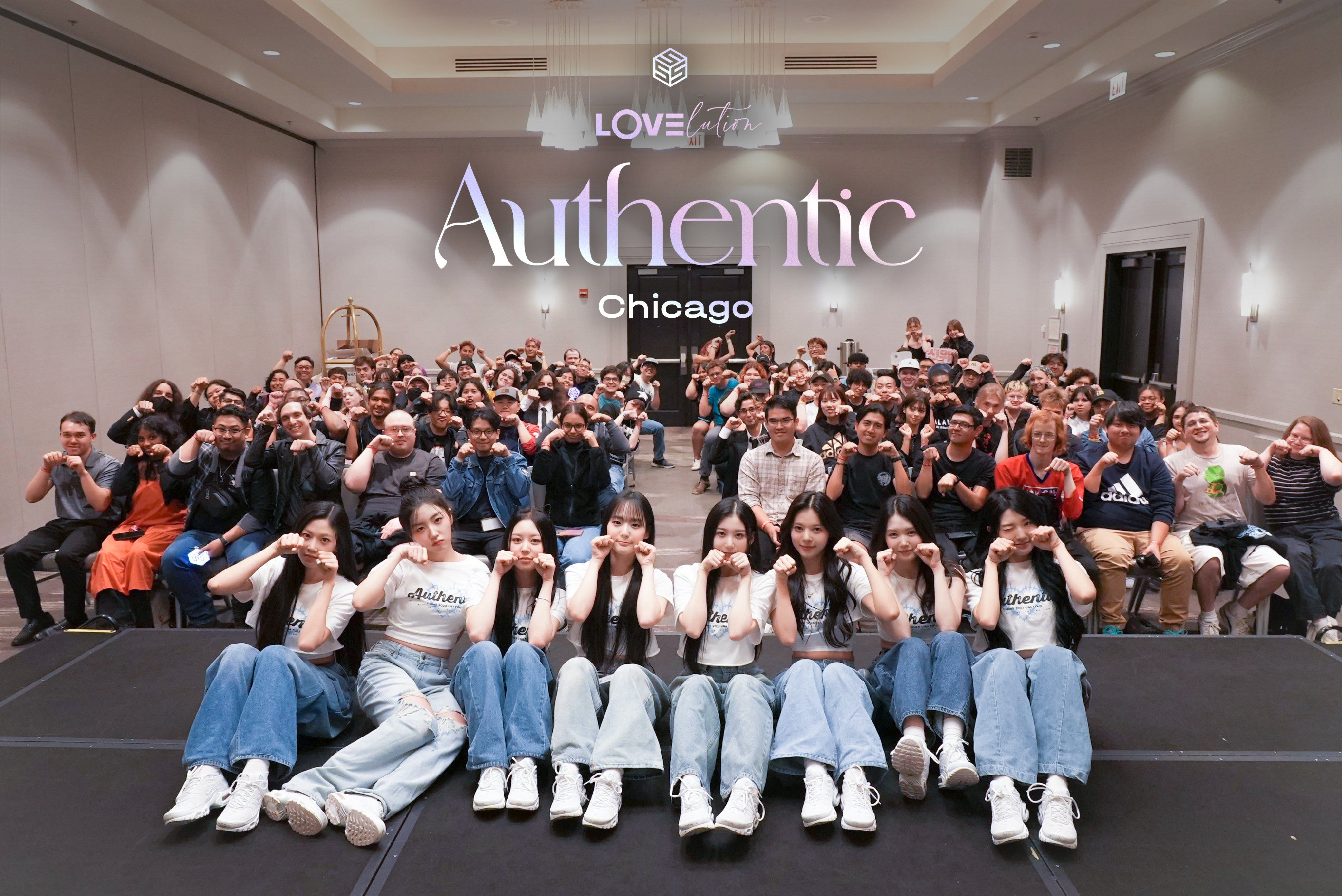

You don’t have to worry about who else likes the group you do.
It’s one thing if there is a legitimate and evidence-supported issue with fan behavior, like that time SM opened an investigation after someone violated an NCT member’s privacy by entering their hotel room. If it’s like that, be concerned and use the appropriate channels to report it to the company.
Otherwise, without proof, you don’t have to worry about (or worse yet, assume) a fellow fan or group of fans’ intentions when they choose to support or also be a fan. We can all be K-Pop fans (real or fake) together, regardless of our gender identity, financial situation/spending, sexual orientation, beliefs, and all that. The more inclusive we are, the more we (and the K-Pop artists, who depend on fans for livelihoods) win.
So I’ve said what you don’t have to do - but what do you have to do to be a K-Pop fan? For me, there are only two simple requirements that even a fake K-pop fan like me can adhere to.

You have to not be a jerk about being a fan.
It feels pretty straightforward, but actor Wil Wheaton’s age-old “don’t be a dick” is still relevant in many fandom cultures, including K-Pop. Being a fan is fine to any degree, but being a fan and being jerky about it isn’t. That includes things like discussing your K-Pop and your favorites with others, and especially if someone else doesn’t like what you do.
While for the most part, I generally consider myself a chill K-Pop fan, there have been times when I skirted the border into having a not-so-nice thing to say. Everyone has those moments, and K-Pop is one of those things that fuels the kind of passionate feeling that can easily be turned negatively. Resist the urge to be a jerk about being a K-Pop fan and it doesn’t matter to what degree you are one - you’re all right in my book.
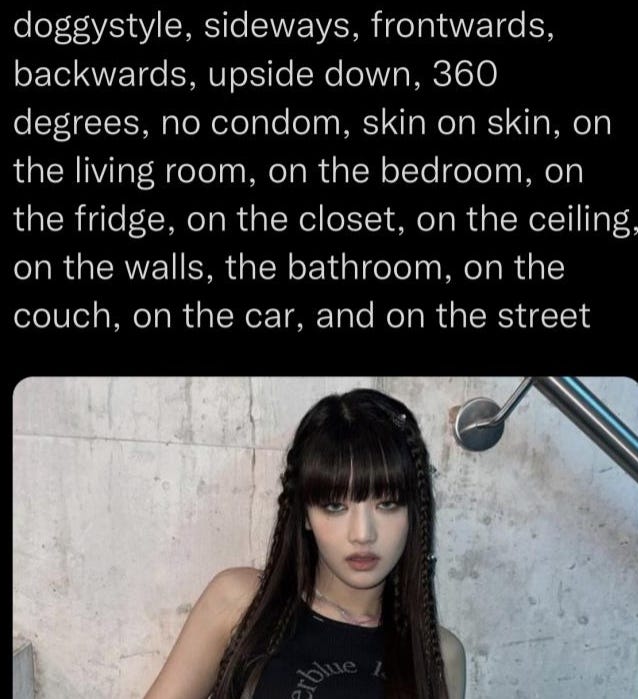
You have to be appropriately respectful to K-Pop artists.
For as much as the industry tries to use the “idol” moniker to make its artists seem otherworldly, in the end, K-Pop idols are still humans. And as such, they should be given the appropriate amount of respect. In a situation where you’d be talking, interacting, or reacting to someone who wasn’t working in K-Pop, you probably wouldn’t say most of the things I’ve seen go by on peoples’ feeds that objectify idols. While respect might seem like a nebulous concept, I don’t think it is - there are common-sense things that span fandom demographics and cultures that constitute non-objectionable behavior, and it really just comes down to knowing and understanding that behind the on-camera presentation, there’s a person there. Act accordingly.

Still here? Fine being a fake K-Pop fan with my simple requirements? Sounds good to me. In the end, if my tongue-in-cheek article has meant to say anything, it’s that with very few factors, being inclusive in K-Pop fandom and not gatekeeping based on perceived criteria is far better than the alternative. Fandom spaces, especially ones driven by shared excitement like K-Pop’s are, deserve to be as wide and as welcoming as possible to people who can follow some common-sense and easy guidelines - and it’s what will ensure fandoms, and by extension the industry, will continue far a while to come.
